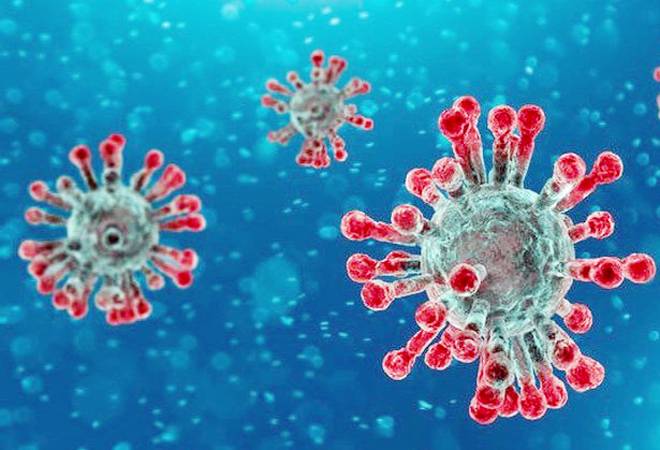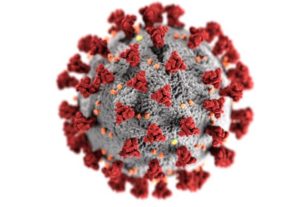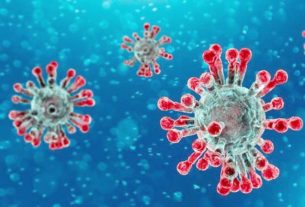From Our Bureau
8th MAY 2020
The Corona Virus (CPVID-19) pandemic situation remained grim globally, with the confirmed cases across the world soaring to 37,59,967 and the death toll reaching 2,59,474 in the 215 affected countries and territories, according to the latest update from the World Health Organization (WHO).
Globally, European region continued to be the worst-hit, with 16,54,345 confirmed cases and 1,52,179 deaths. American region came next with 15,86,129 confirmed cases and 87,930 deaths. Eastern Mediterranean region reported 2,37,323 confirmed cases and 8,608 deaths.
Western Pacific region’s tally stood at 1,57,447 confirmed cases and 6,394 deaths. South-East Asia region recorded 86,294 confirmed cases and 3,075 deaths and African region witnessed 37,717 confirmed cases and 1,275 deaths. WHO Risk Assessment at global level remained very high.
WHO launched a checklist to support prison administrators and policy-makers for rapid and effective response to COVID-19. WHO is supporting several African countries to coordinate and reinforce the work of emergency medical teams (EMTs) deployed to support the efforts to contain the spread of COVID-19 pandemic.
The WHO Regional Director for Europe, Dr. Hans Henri P. Kluge stated his concern about the increase in interpersonal violence during COVID-19, and emphasized that “violence is preventable, not inevitable.”
At the third meeting of the International Health Regulations (IHR) (2005) Emergency Committee for COVID-19, the WHO Director-General reaffirmed that the outbreak of COVID-19 continues to constitute a public health emergency of international concern and issued the Committee’s advice to States Parties as Temporary Recommendations under the IHR.
Today, WHO celebrated the 40th anniversary of the Declaration of Smallpox Eradication by the 33rd World Health Assembly. At the media briefing, WHO Director-General Dr Tedros Adhanom Ghebreyesus, said “Exactly 40 years ago today, on the 8th of May 1980, the World Health Assembly officially declared that ‘the world and all its peoples have won freedom from smallpox’. Smallpox is the first and, to date, the only human disease to be eradicated globally. Until it was wiped out, smallpox had plagued humanity for at least 3000 years, killing 300 million people in the 20th century alone. Its eradication stands as the greatest public health triumph in history.”
“As the world confronts the COVID-19 pandemic, humanity’s victory over smallpox is a reminder of what is possible when nations come together to fight a common health threat.
Many of the basic public health tools that were used successfully then are the same tools that have been used to respond to Ebola, and to COVID-19: disease surveillance, case finding, contact tracing, and mass communication campaigns to inform affected populations,” he pointed out.
“The smallpox eradication campaign had one crucial tool that we don’t have for COVID-19 yet: a vaccine; in fact, the world’s first vaccine. As you know, WHO is now working with many partners to accelerate the development of a vaccine for COVID-19, which will be an essential tool for controlling transmission of the virus. But although a vaccine was crucial for ending smallpox, it was not enough on its own. After all, the vaccine was first developed by Edward Jenner in 1796. It took another 184 years for smallpox to be eradicated.
“The decisive factor in the victory over smallpox was global solidarity. At the height of the Cold War, the Soviet Union and the United States of America joined forces to conquer a common enemy. They recognized that viruses do not respect nations or ideologies. That same solidarity, built on national unity, is needed now more than ever to defeat COVID-19.
Stories like the eradication of smallpox have incredible power to inspire. But there are many more untold stories about health around the world.
“I have announced the resources WHO estimates it needs to deliver our updated Strategic Preparedness and Response Plan for COVID-19. The updated plan estimates that WHO requires US$1.7 billion to respond to COVID-19, across the three levels of the organization, between now and the end of 2020. This estimateincludes the funds that WHO has already received to date, leaving WHO’s COVID-19 response with a funding gap of US$1.3 billion for 2020. To be clear, this estimate only covers WHO’s needs, not the entire global need.
“WHO is deeply grateful to the countries and donors who responded to WHO’s initial Strategic Preparedness and Response Plan, and to the hundreds of thousands of individuals, corporations and foundations who have contributed to the COVID-19 Solidarity Response Fund – we thank you so much for your commitment and support.
“Our updated strategic plan takes into account the lessons we have learned so far, strengthening WHO’s role in global and regional coordination. It is built on five strategic objectives: First, to mobilize all sectors and communities; Second, to control sporadic cases and clusters by rapidly finding and isolating all cases; Third, to suppress community transmission through infection prevention and control and physical distancing; Fourth, to reduce mortality through appropriate care; And fifth, to develop safe and effective vaccines and therapeutics.
“To support these objectives, WHO will continue to provide technical, operational and logistics support to countries, and we will continue to update and adapt our guidance according to local needs. In certain fragile settings and countries with weaker health systems, WHO will continue its operational work as a provider of essential health services.
“As we reflect today on the eradication of smallpox, we’re reminded of what is possible when nations come together to confront a common foe, to confront a common enemy. The legacy of smallpox was not only the eradication of one disease; it was the demonstration that when the world unites, anything is possible. If there is a will, there is a way. It gave us the confidence to pursue the eradication of other diseases like polio and Guinea worm.
“Like smallpox, COVID-19 is a defining challenge for public health. Like smallpox, it’s a test of global solidarity. Like smallpox, COVID-19 is giving us an opportunity not only to fight a single disease, but to change the trajectory of global health, and to build a healthier, safer, fairer world for everyone – to achieve universal health coverage, to achieve our dream from the establishment of WHO in the 1940s: Health for All,” the WHO Director-General added. (eom)


